| | |

Chapter 15
|
|
|
|
|
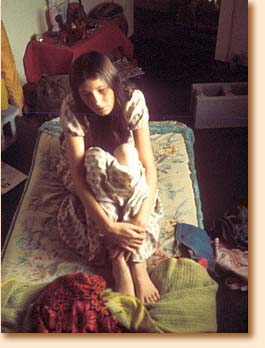 |
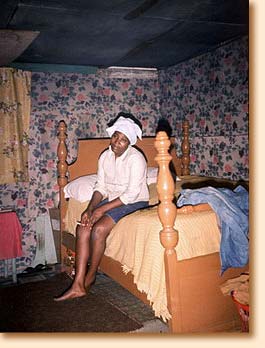 |
| | |
|
As a vagabond I can in time break out of this
brainwashing and move back to the different impact of the black community. The greatest freedom I know is thus to be able to say yes; the
freedom to throw yourself into the arms of everyone you meet.
|
| | |
|
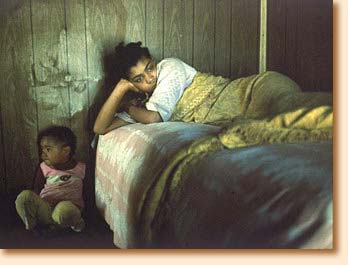 |
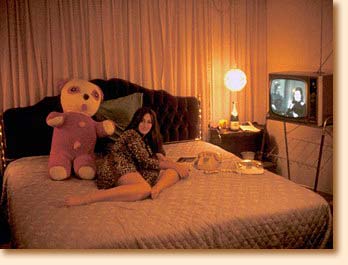 |
| | |
|
Yet I soon learned that there are limits - for instance for a
male hitchhiker. Foreigners usually find white American women incredibly open,
but that also makes them extremely vulnerable. It is important to let the woman set the boundaries of a new
friendship if we hope to avoid the sexism imposed on us by society.
|
| | |
|
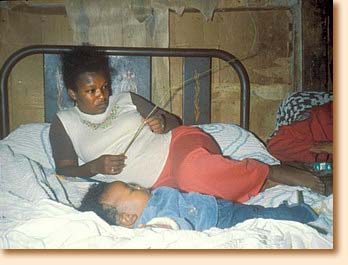 |
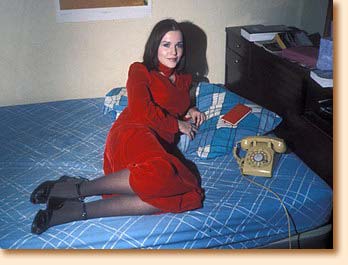
|
| | |
|
From early childhood we were never given the choice of becoming
sexists or racists or not, but only of trying to counteract the most negative
repercussions of our suffering.
|
| | |
|
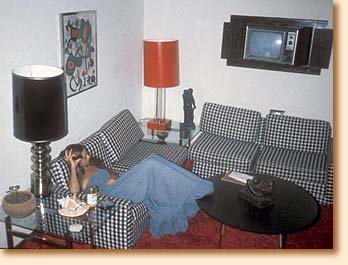 |
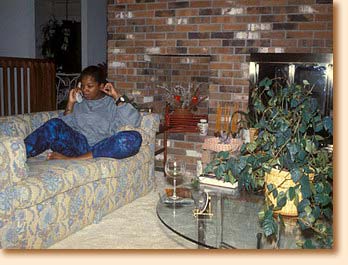 |
| | |
|
On the other hand I can not - as when male drivers pick me up -
just say yes to women and float along to the critical point where hurt feelings
can develop. To be a good vagabond is harder than being a tightrope walker. Students
in American universities trying to be politically correct know the difficulty of
my balancing act.
|
| | |
|
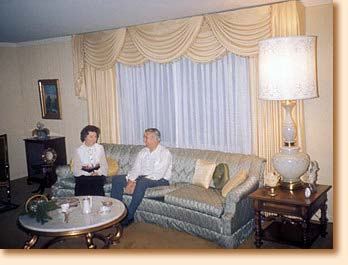 |
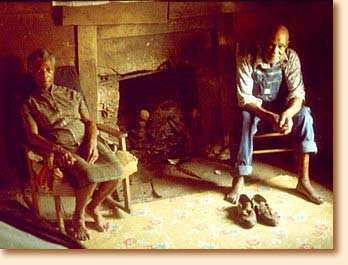 |
| | |
|
Such a balancing dilemma I faced in Alabama when I lived with a
rich bank owner. This banker was one of the more liberal in Alabama and
had hired "niggers" as cashiers in his bank, although he called them
negroes
whenever he was in their company.
|
| | |
|
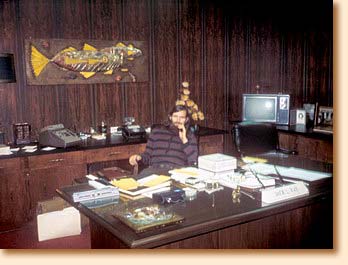 |
 |
| | |
|
Often as a poor vagabond
I periodically got a strong desire to get an education in order to have a
career and get to the top in society, but whenever I, as here, got a chance to
live the so-called good life, it usually made me so sick that I quickly fled
out again to the highway.
|
| | |
|
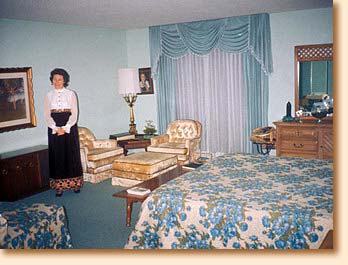 |
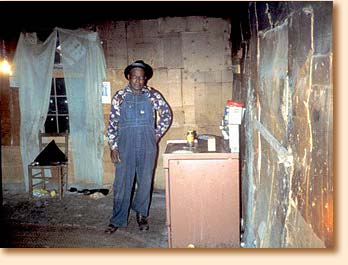 |
| | |
|
For where did all the gold, which the banker used for his luxury
home outside the city, come from?
|
| | |
|
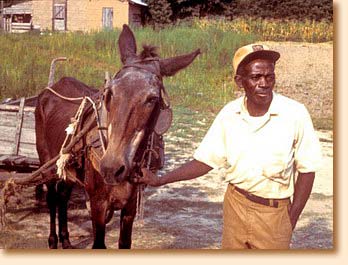 |
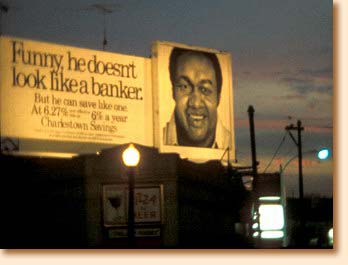 |
| | |
|
Well, he told me that he had made his fortune by giving bank loans to poor
black sharecroppers so that they could buy themselves a mule or move from the
rotten shack into a streamlined plastic trailer to join the new plastic
proletariat of more than 30 million Americans.
|
| | |
|
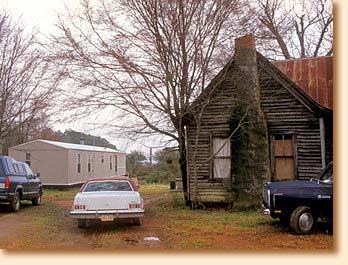 |
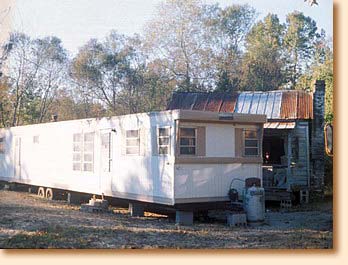 |
| | |
|
But many sharecroppers cannot even afford these modern plastic
shacks.
They have enough problems making payments for the mule and are in
constant debt not only to the bank, but also to the white landowner who owns
the fields and to whom they often must pay the greater share of their harvest,
just as we in feudal Europe paid the church and the squire.
|
| | |
|
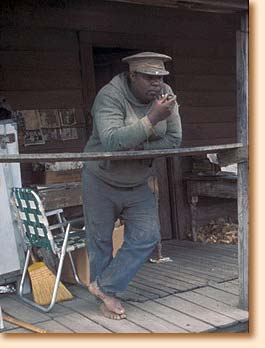 |
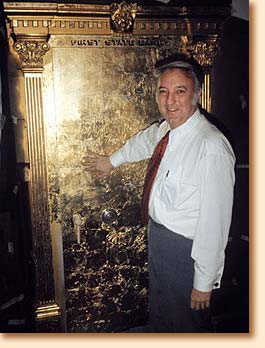 |
| | |
|
The system started at the end of the civil war when neither the
planters nor the freed slaves had any money. Driven by hunger to work for
little or nothing, the destitute blacks made agreements with their former
slave-owners to borrow land as well as housing and seed.
|
| | |
|
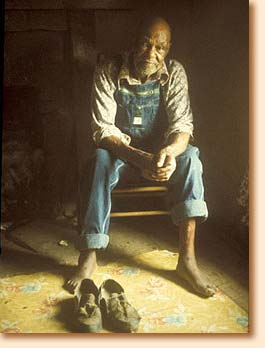 |
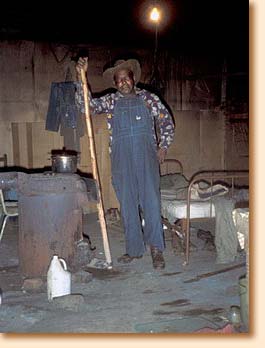 |
| | |
|
In theory, they would share the profit when the harvest was
sold. But debt and dishonest bookkeeping usually brought the sharecroppers into
a situation materially worse than under slavery, in which the master had at
least an interest in feeding them.
|
| | |
|
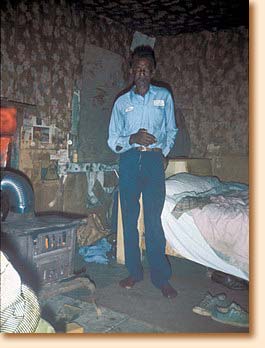 |
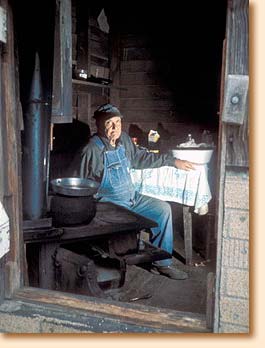 |
|
|
|
The system has continued from generation to generation and on top of the
eternal debt to the landlord came the debt to the commissary store and later
the bank, all helping to create a white upper class.
|
| | |
|
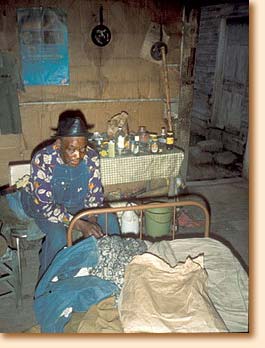 |
 |
|
|
|
This banker in Alabama had feathered his nest so well that he
could take me on a trip in his private airplane to look at his
niggers from above.
The Atlanta Constitution revealed that such exploitation -
like the squire in European feudalism - continued through the 1990's.
|
| | |
|
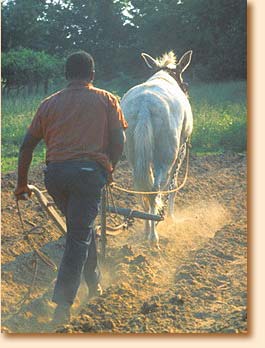 |
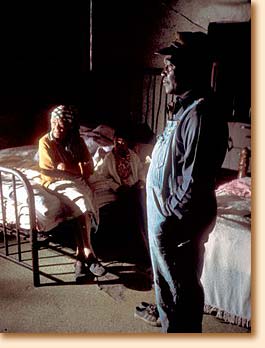 |
|
|
|
American thinking says that when people go hungry they only have
themselves to blame because they will not work.
But why then do the hungry often work harder and longer than
those who are causing their hunger?
|
| | |
|
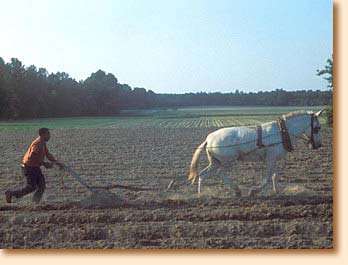 |
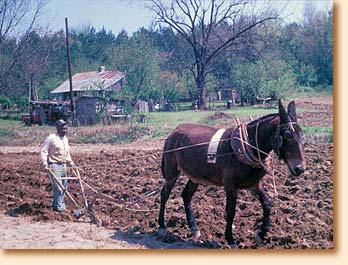 |
|
|
|
Later I visited this tenant farmer living close
by. Both he and his wife
were 78 years old and should have stopped working years ago. But he said to me:
"I have to work until I drop dead in the fields. Last year my wife got heart
trouble so now I must do the work by myself." |
| | |
|
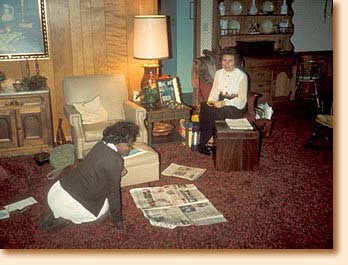 |
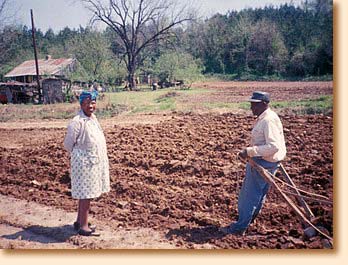 |
|
|
|
Twice a year he walked to the
local store to buy a bit of flour and a little sugar. That's all he ever
bought. I asked what they got to eat for breakfast. He answered: "A glass of
tea and a little turnip greens."
- What then for lunch, I asked. "Just turnip
greens," he answered.
- And what then for supper? "Mostly turnip greens" was
the reply. |
| | |
|
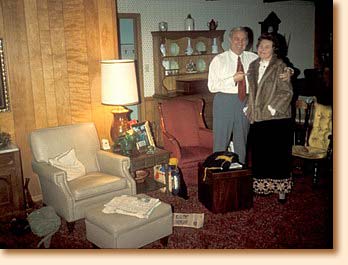 |
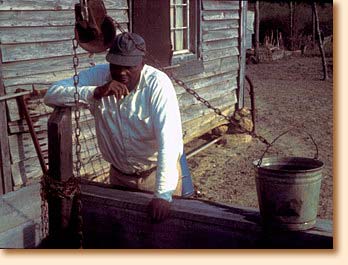 |
|
|
|
My attempts to find out about conditions for these sharecroppers ran
into an almost impenetrable wall of fear and intimidation. I had imagined that
this fear was entirely historically conditioned until one night after a visit
to such a sharecropper, on my 10-mile walk down a dead end road to my shack, I
was suddenly "ambushed" by a pickup truck with headlights turned on me and guns
sticking out. I managed to talk my way out of this situation, but little by
little I realized that such intimidation was deeply rooted in the violent
system of peonage, which traditionally has prevented sharecroppers and
farm workers from fleeing their "debt" by the use of beatings, jailings, and
murder. |
| | |
|
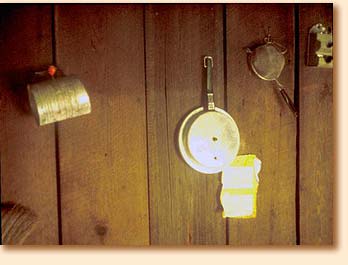 |
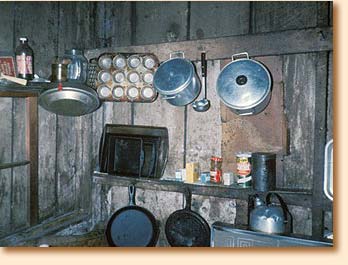 |
|
|
|
During World War II the U.S. Justice Department admitted that "there are more Negroes held
by these debt slavers than were actually owned as slaves before the Civil War." Yet the Justice Department did nothing to prosecute these slave owners, who
even traded and sold the peons to each other. Although there were an increasing
number of peonage cases in the 1970's, it is only a few that end up in court;
and only the most cruel, such as a case in 1980 where a planter chained his
workers to prevent their escape, reach the press (and the American public). |
| | |
|
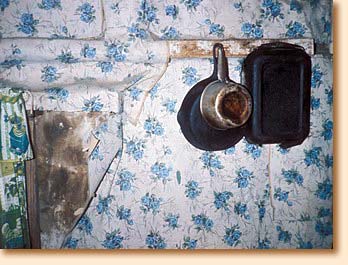 |
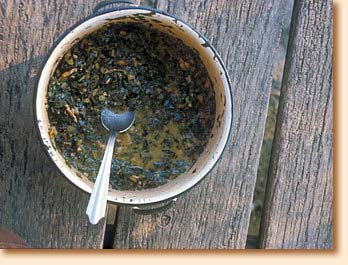 |
|
|
|
The more I began to penetrate this undercurrent of dread and terror, the
more I began to feel that the first part of this century has had a far more
violent influence on the black psyche than the probably more paternalistic
antebellum slavery.
I began to feel poles apart from the common white ignorance
which seems forever unable to understand why their own white ancestors could
"make it" in a short time while the blacks in 100 years of
"freedom" had been
"incapable of making it." |
| | |
|
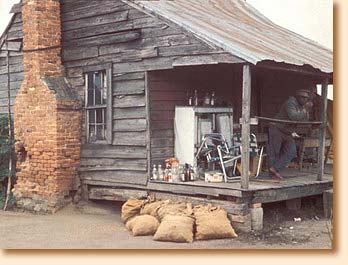 |
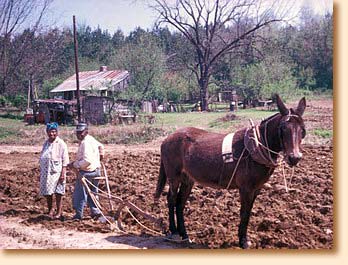 |
|
|
|
This banker, who is a recent beneficiary of this
violent ignorance, had unknowingly fit one more piece for me into the pattern
of hunger and dread I saw in the rural underclass. |
| | |
|
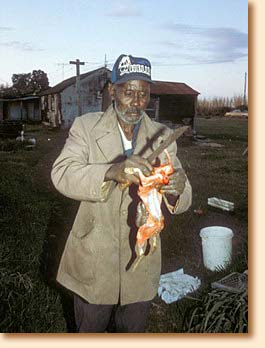 |
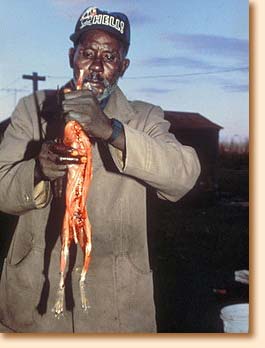
|
|
|
|
- But often you went to bed hungry?
- Yes, Sir, more times than not. But some times people would give
us some bread or give us a meal.
|
| | |
|
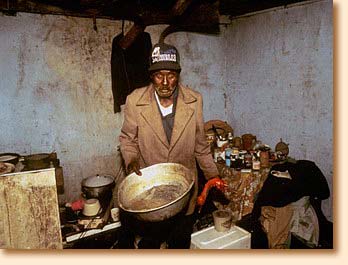 |
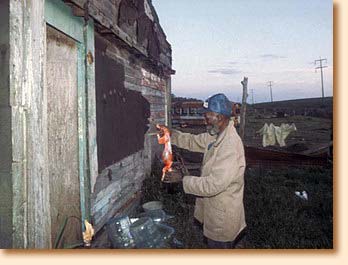 |
| | |
|
- White people?
- Sometimes whites, sometimes colored. Sometimes we would have
nothing and go to bed hungry. We went to bed a million nights hungry. Sometimes
we wanted to hunt, but were too weak to catch the rabbits.
|
| |
|
|
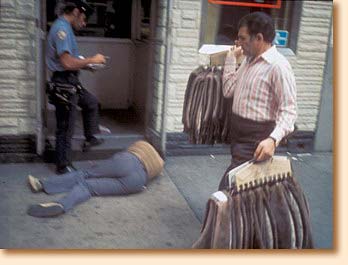 |
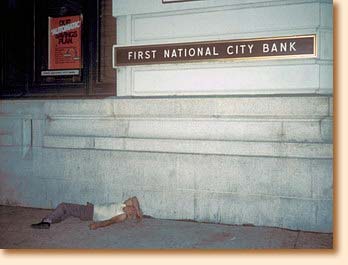 |
| | |
|
Racism is afflicting all countries. Yet it is more apparent in America because it is intertwined
with a ruthless class division - the greatest gap between rich and poor in the
industrial world. For without a protective welfare state here to hold our free
enterprise system in check many people are made too poor to be free to
enterprise in it. When 2 % today therefore ends up owning 80% of the American
wealth it is not hard to see where this banker's mink fur actually came from.
|
| | |
|
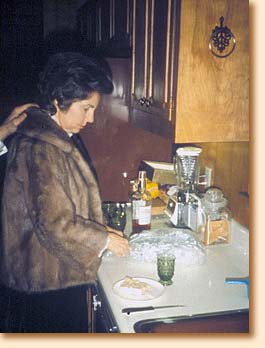 |
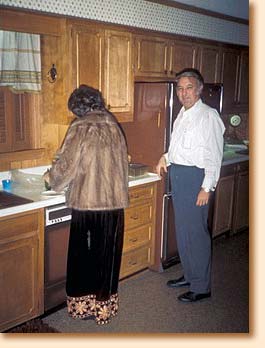 |
| | |
|
The only thing he cannot buy is real happiness. And so I see again and again that the upper class try to
substitute whiskey, tranquilizers, and cocaine for personal happiness.
|
| | |
| | |
|
|
| | |